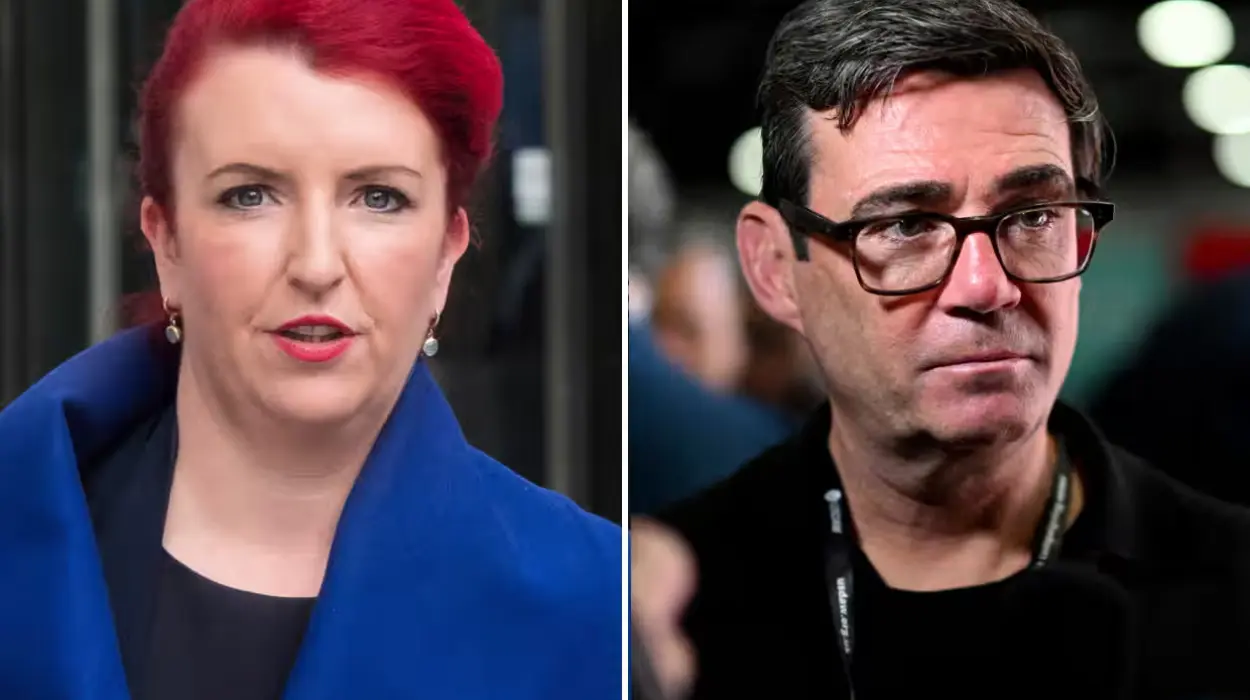UK (Parliament Politics Magazine) – Louise Haigh and Andy Burnham urged a bold economic reset in Labour’s spending review, calling for a wealth tax and urgent reforms in housing and education.
As reported by The Guardian, former minister Louise Haigh will press Labour to use the upcoming spending review as a chance to reset the economy with bold public spending and a wealth tax.
What will Louise Haigh propose at the Compass event?
Labour figures Louise Haigh and Andy Burnham will outline key proposals in their scheduled speeches at a Compass event on Saturday.
After stepping down from the cabinet in November due to a fraud conviction over a lost work phone, Ms Haigh plans to push again for a wealth tax. She described the local election on 1 May as a clear signal that voters want bolder policies.
The ex-minister will say,
“The spending review must be a moment for an economic reset. I welcome the prime minister’s review of winter fuel changes but we must go further, ripping up our self-imposed tax rules and taxing the country’s vast wealth.”
She will argue that the current tax system
“punishes earned income but barely touches the sides of the real driver of inequality – wealth”.
It is time to
“finally move beyond a broken model where working people’s wages are topped up by tax credits and benefits, leaving bad employers and landlords to profit.”
Ms Haigh is set to say
“It’s about moving from a system of handouts for the rich to real investment for everyone else. We need real reform: a proper wealth tax that rewards work, closes loopholes and finally gives us the means to invest in the NHS, schools and our communities.”
What will Andy Burnham say about Labour’s future and the housing crisis?
Her comments arrive as Andy Burnham pushes Labour to firmly position itself once again as the party of working-class ambition, emphasizing housing and education reforms.
Mr Burnham, Greater Manchester’s mayor, will urge ministers to allow mayors to develop public land and aim for more new social homes than those sold off.
His speech extracts reveal he views the spending review as crucial, urging Labour to counter the electoral threat posed by Reform UK.
Mr Burnham will say,
“Rather than standing for the status quo, the time has come for the party to re-establish itself unequivocally once again as the party of working-class ambition, shedding the perception in the Midlands and the north of a London-centric, university-oriented party.”
The plan urges a sharp focus on housing and education to tackle what Mr Burnham describes as Britain’s core problem – a housing crisis driven by ideology rather than immigration.
According to him, the Thatcher-era right-to-buy policy, without sufficient investment in social homes, “shattered the foundations on which generations of working-class British families built better lives.”
He will argue,
“Labour’s clarion call should be to free Britain from the grip of the housing crisis. In this spending review, working with mayors in the big city regions, it should set the date by which each will reach the crucial tipping point of building more social homes than they are losing.”
Mr Burnham will say,
“This is the moment when, instead of tightening its grip, the housing crisis starts to ease. To do that, the spending review should unlock public land for mayors to use to build a new generation of council homes at pace – akin to the drive of the postwar Labour government.”
What did Angela Rayner say about tackling the housing crisis?
Deputy Prime Minister Angela Rayner announced restrictions on the right-to-buy policy alongside a push for more social housing investment.
However, these measures have so far failed to ease the ongoing housing crisis.
Who are the other speakers at the Compass event?
- Mark Drakeford, former First Minister of Wales
- Rachael Maskell, Labour MP
- Simon Opher, Labour MP
- Miatta Fahnbulleh, Junior Energy Minister
Labour’s housing target
- Overall target: 1.5 million new homes in England over the next five years (2024-2029)
- Current shortfall: The UK needs ~43,000 new homes per quarter to meet demand but is building ~20,000 fewer
- Affordable housing:
- 6,500 affordable homes/year (30,000 over 5 years)
- 5,000 cost-rental homes/year (25,000 over 5 years)
- 13,400 social homes/year (67,000 over 5 years)
- Economic impact: Expected to boost the UK economy by £6.8bn and increase annual housebuilding to 305,000 homes (a 40-year high)


